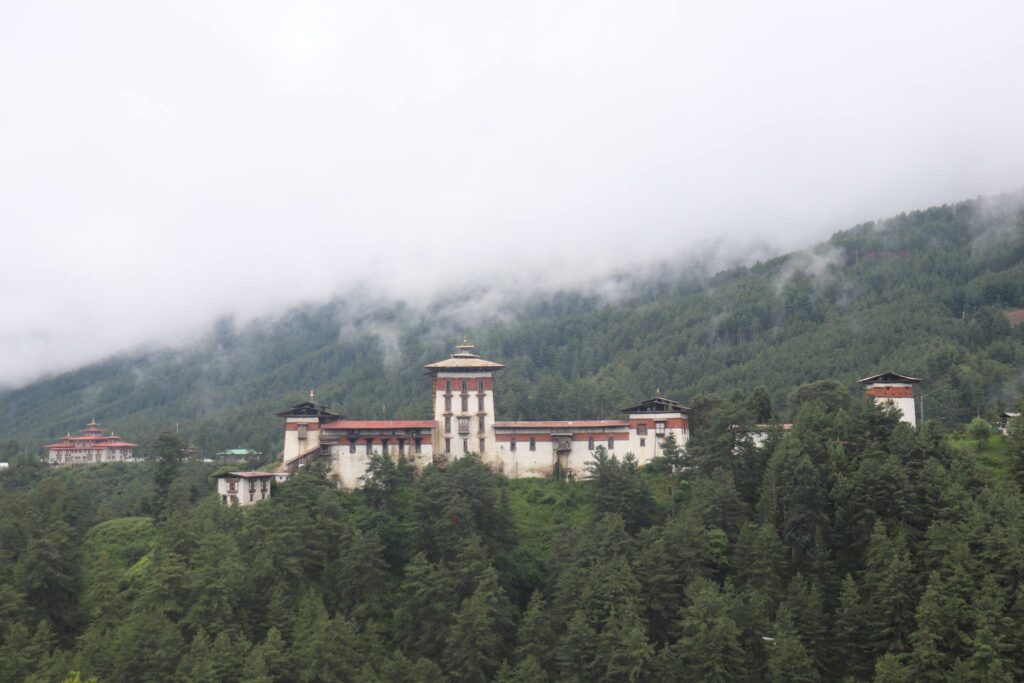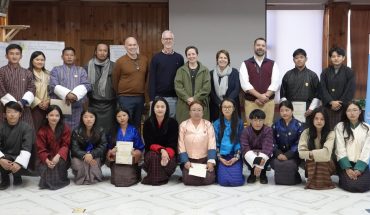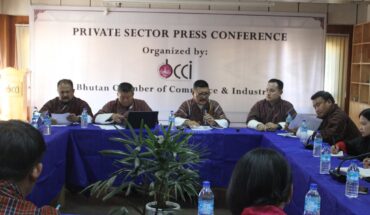

KINZANG DORJI TSHERING | Thimphu
Bhutanese citizens across the country are preparing to celebrate the 118th National Day on 17 December 2025, with this year’s main festivities held in Bumthang. The occasion commemorates the coronation of Gongsar Ugyen Wangchuck, the First Druk Gyalpo, in 1907, which established the hereditary monarchy and laid the foundation for Bhutan’s political stability and national identity.
Since its establishment, the Wangchuck dynasty has guided Bhutan through change and development. The First Druk Gyalpo united the country and strengthened Bhutan’s sovereignty during a time of regional uncertainty. Successive monarchs have modernized the nation: the Second Druk Gyalpo reinforced national unity, the Third Druk Gyalpo introduced political and administrative reforms and opened Bhutan to international relations, the Fourth Druk Gyalpo championed decentralisation, environmental protection, and Gross National Happiness (GNH), and the Fifth Druk Gyalpo is now guiding Bhutan through digital transformation, youth development, and national reforms.
Over the decades, Bhutan has made progress in healthcare, education, infrastructure, and connectivity, with expanding digital services and improving living standards. However, the country faces ongoing challenges, including dependence on hydropower, tourism, and the public sector, youth unemployment, urban migration draining rural manpower, and climate vulnerabilities such as glacial lake outburst floods and unpredictable weather that affect agriculture and rural livelihoods.
His Majesty The King’s leadership remains central to addressing these challenges. Through frequent interactions with citizens from farmers to youth groups—His Majesty emphasizes skills, discipline, and values to prepare Bhutanese youth for global competition. National initiatives such as the Gelephu Mindfulness City project aim to attract investment, innovation, and talent while remaining grounded in Bhutanese culture and GNH principles. Public sector reforms focus on efficiency and accountability to serve citizens better as the country modernizes.
Communities across Bhutan are responding with resilience. Farmers increasingly use digital platforms to reach wider markets, youth led start-ups are emerging in technology, agriculture, and creative sectors, and communities unite to address climate-related events. Civil servants are embracing administrative reforms, and returnees home bring new skills to support local development. The 118th National Day in Bumthang serves as both a celebration and a reminder: it honours the leadership of the monarchy, recognizes the unity of the Bhutanese people, and encourages all citizens to contribute to a stronger future. As His Majesty has stated, “The future is neither promised nor guaranteed. It must be earned.”
Residents and students in Bumthang expressed their pride and anticipation for the celebrations. Kinley Rigzin Jamtsho, a student from Norbuling Rigter College said, “I think it’s a wonderful idea. Bringing National Day to Bumthang feels special and shows the importance of every region. The cool, peaceful vibe here will make the celebrations feel different and meaningful.” He added, “I’m most excited for the traditional dances and songs.
“Bumthang has its own style of cham (mask dances) and folk music. I also always look forward to the local food stalls and seeing the community come together for the marchang ceremony.” He further noted, “It’s a huge boost for the local community. It brings visitors, which helps small businesses like hotels, restaurants, and handicraft shops. It also gives everyone here a great sense of pride to be in the national spotlight.” On local traditions, he said, “I hope they highlight our Jambay Lhakhang Drup festival traditions and our unique woollen textiles (Yathra). The way we celebrate with local alcohol (ara) and buckwheat dishes is also a big part of our culture.” He concluded, “It’s very important to me. Participating isn’t just about fun; it’s a way to feel connected to my country and my local community at the same time. It reminds me of our shared identity and history, right here at home.”
Thinley Wesel Phuntsho, a student from Royal Thimphu College shared similar sentiments. “I feel very happy and proud that National Day is being celebrated in Bumthang. Bumthang is a very important place for our history and culture, as the first three kings have had their summer residence here blessed by Guru Rinpoche, so it feels meaningful to have such a special day celebrated here.” He added, “I am most looking forward to the traditional dances, mask dances, and cultural programs by the local people and students. Moreover, the strong man competition finals will be held on the National Day which will be worth watching. Seeing our own people perform makes the celebration more special.” On the impact for the community, he said, “Hosting National Day helps the local community a lot. More people come to Bumthang, which supports local businesses, farmers, and shopkeepers. It also helps promote our culture and traditions to others.
Moreover, more tourists might visit Bumthang bringing in an inflow of economic value.” He emphasized the importance of local culture, stating, “I hope Bumthang’s unique traditions like our local dances, folk songs, and traditional dress will be highlighted. These traditions are special and should be shown to the younger generation and visitors.” He concluded, “It is very important for me to take part in National Day celebrations in my district. It helps me show respect to our Kings, our country, and our history, and it also brings the community together.”
Sonam Tobden, a citizen of Bumthang, reflected on the district’s historical and cultural significance, saying, “Hosting National Day in Bumthang is an honour, evoking pride in the district’s rich history tied to Bhutan’s unification under Trongsa Penlop Jigme Namgyel, who built the palace in 1857.
Residents express joy at the rare opportunity to showcase their region before Their Majesties and the Royal Family. A local resident in Chamkhar town, Namgay said students and dancers from across Bumthang have been rehearsing intensively. Performances at the main venue for over 30,000 attendees will highlight local activities and Ngagay Dendur, making the celebrations meaningful.”
Regarding the impact on the community, he said, “Hosting boosts infrastructure, with venue setups by De-suups, police, army, and volunteers, fostering unity and economic activity. It instils pride and creates lasting memories, as locals note opportunities like this may not recur.” He highlighted Bumthang’s sacred mask dances and local festivals, stating, “Cham dances from Kurjey Tshechu and other festivals, performed by monks and laymen, symbolize spiritual purification and cultural heritage.
He concluded, “Participating in district festivities holds deep significance for reinforcing national unity and Bhutanese identity, especially in a central cultural and traditional hub like Bumthang. Personal involvement through volunteering or attending strengthens community bonds during this key holiday commemorating the first Druk Gyalpo’s 1907 coronation.”
These reflections underscore the pride, cultural engagement, and historical significance that the 118th National Day brings to Bumthang, highlighting how citizens and visitors alike value participation in the festivities. This year’s celebrations will feature cultural performances, flag hoisting, and public addresses by His Majesty, reflecting Bhutan’s history, identity, and ongoing commitment to development, unity, and national progress.





